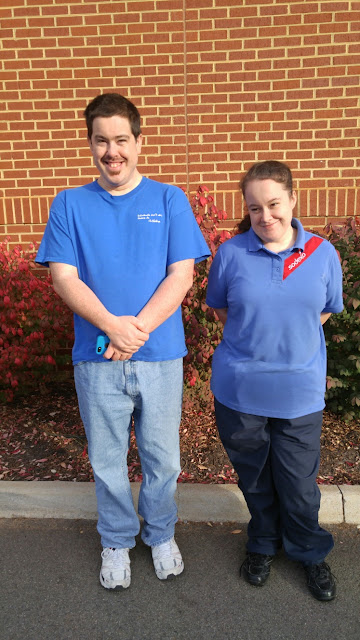Angela's Story and Her Call to Action
A recent article on Disability.gov’s blog, written by Angela M. Hooker, was brought to our attention that highlights a lot of the points we’ve tried to make in our own blog posts. We want to change perspectives of thinking what people with disabilities CAN’T do, to an inclusive attitude of what they CAN achieve. We strive to end the misconception that job accommodations have to be expensive and inconvenient. Or, even that hiring a person with a disability means they’ll be somehow less productive or qualified for the job when there are abundant examples of the opposite. She says:
"Are we, through discrimination, fears and preconceptions, depriving our nation of the next Steve Wampler, Stevie Wonder, Stephen Hawking or Stephen Fry — all of whom have disabilities? Imagine our world without the art, skill and knowledge that they bring and contribute to our society. And there are even more dynamic and talented workers out there, and we should have the opportunity and privilege to engage and collaborate with them all in the workplace."
We could not have said it any better than Angela. Here are 5 calls to action that she outlines in her own story of trying to achieve her goals of employment.
- Create opportunities for diverse workplaces with atmospheres where people with disabilities don’t have to worry about stigmas. They should feel comfortable at work and know that their colleagues will accept them as they are.
- Educate ourselves about disability and employment laws. Sometimes employers fear breaking the law and lawsuits, and thus are reluctant to interview people with disabilities.
- Make our workplaces accessible — in the attitude, technology and physical sense — to people with disabilities. These three elements will support productivity and efficiency for all employees.
- Train our entire teams on disability etiquette, so they’ll know how to interact with people with varying abilities, and conduct themselves and represent you in work situations.
- Ensure that tools, including software and systems, are accessible so that employees can access them and complete their work in a timely manner. Workers should be able to work independently without relying on colleagues to assist them in ordinary, independent tasks.
For Angela’s full story, visit Disability.gov





Comments
Post a Comment